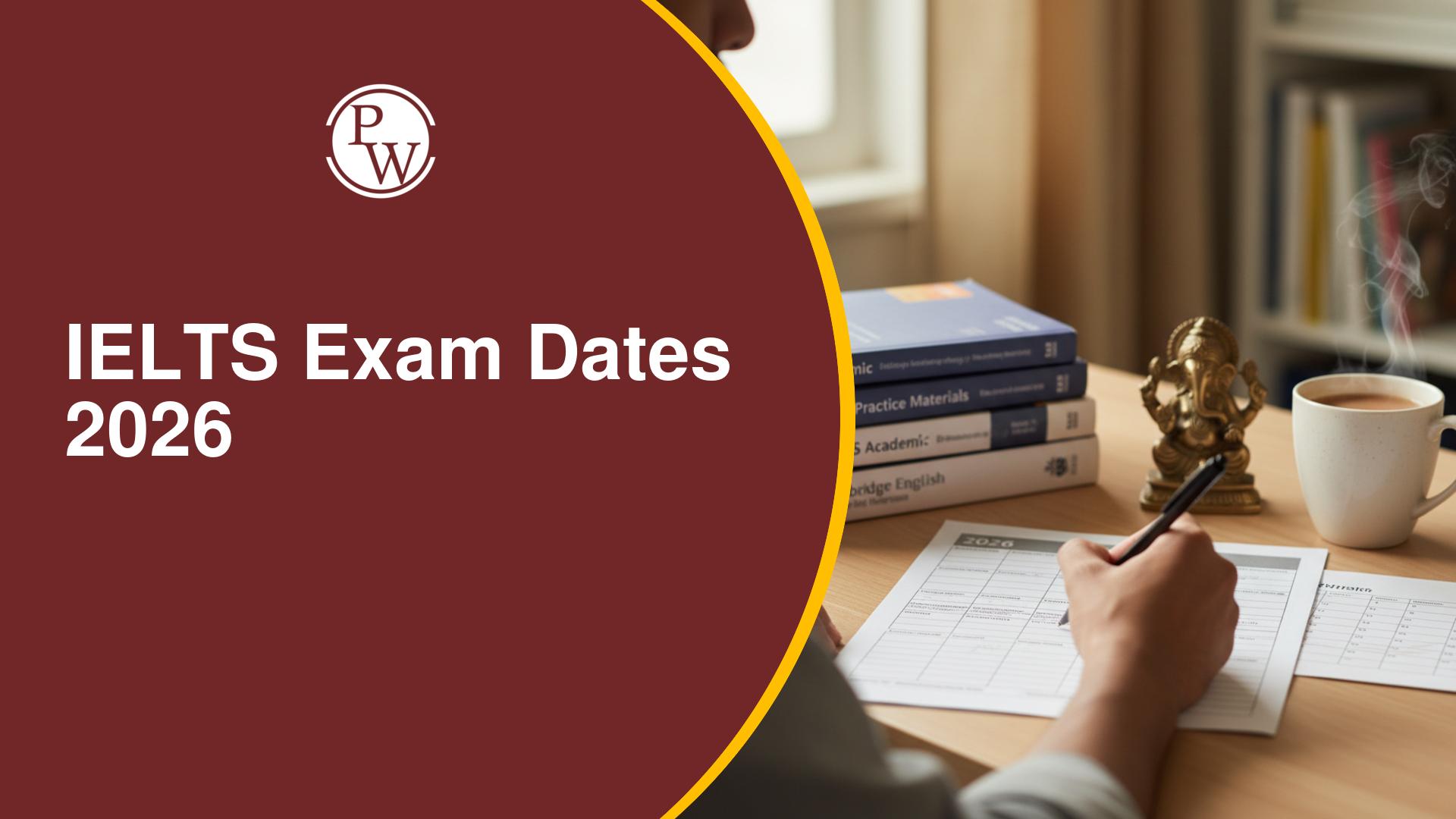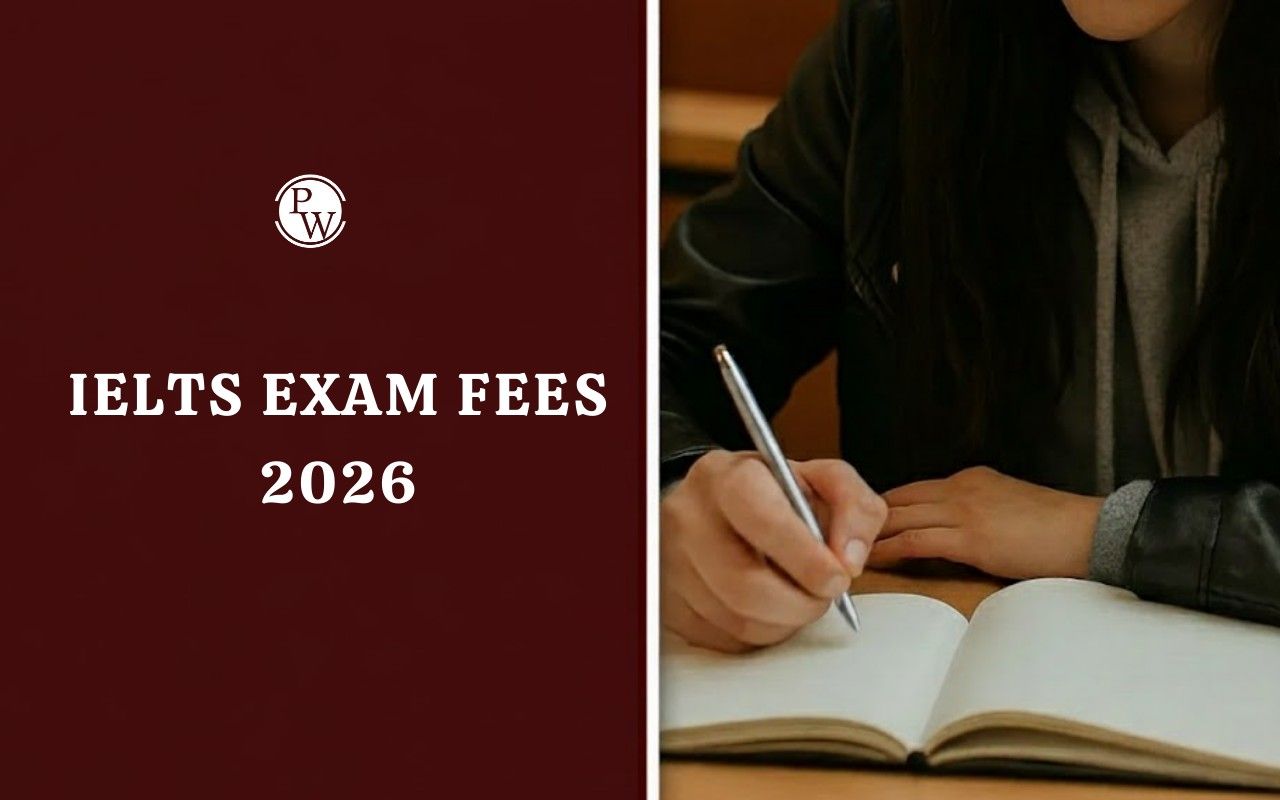
IELTS General Writing Task 1 Informal Letter: In the IELTS General Writing Task 1 asks you to respond to a situation by writing a letter. The nature of this letter, whether formal, semi-formal, or informal, depends entirely on who the recipient is.
An informal letter is written to someone you are personally close to. Think friends, family members, or even neighbours or former classmates. The tone is relaxed, natural, and friendly. It reflects the kind of language you'd use when chatting with that person in real life, except that it’s slightly more organised and coherent since it's part of a test.
You’ll be given a prompt with a short situation followed by three bullet points. These are the tasks you must cover in your letter. Missing any of these points will cost you marks, no matter how beautifully you write.
Click Here to Explore PW IELTS Online Courses
IELTS General Writing Task 1 Informal Letter Overview
One of the first things to learn is how to recognise when a letter should be informal. IELTS doesn’t label the tasks as “formal” or “informal.” Instead, they let the situation guide you.
Here are some cues that you're being asked to write an Informal Letter:
-
The recipient is a friend, relative, or someone you know well
-
The situation is personal, not professional
-
Words like "your friend," "your cousin," "someone you know well," etc. are mentioned
Examples of Informal Letter Prompts
-
You are planning a trip and want to invite a friend.
-
A friend is coming to your city, and you want to suggest places to visit.
-
You’ve moved into a new house and want to tell your cousin about it.
-
You are unable to attend a friend’s party and want to apologise.
In all of these cases, your tone should match how you naturally speak to a friend—warm, conversational, and slightly casual.
Read More: Types of IELTS Writing Task 1 questions
Structure of an Informal Letter
While informal letters offer flexibility in tone and language, the structure still matters. Having a clear structure helps the examiner follow your points and improves the overall coherence of your writing.
1. Opening Salutation
Start with a friendly greeting. Common options include:
-
Hi [Name],
-
Dear [Name],
(Just don't use “Sir/Madam” in informal letters—it’s too stiff.)
2. Introduction Paragraph
Your first paragraph should:
-
Greet the person
-
Mention the purpose of the letter
-
Possibly ask how they’re doing
It sets the tone for the rest of the letter and helps ease into the topic.
3. Main Body Paragraphs
This is where you cover the three bullet points from the task. Ideally, cover each bullet in its own paragraph or distinct section. Be sure to elaborate, give examples, and keep your language natural.
4. Closing Paragraph
Conclude your letter by:
-
Wrapping up your points
-
Expressing hope to hear back
-
Offering help if needed
-
Showing appreciation
5. Sign-Off
Keep it friendly and simple:
-
Best wishes,
-
Take care,
-
Lots of love,
Follow this with your first name (or a made-up name).
Practice Free IELTS Writing Practice Tests
Language and Tone in Informal Letters
Be Conversational
This is not an essay. Think of it like storytelling. Use phrases you’d use in real life—but write them in complete, clear sentences.
Use Contractions
In informal letters, contractions like:
-
I’m
-
We’ve
-
You’ll
-
Don’t
-
Can’t
Use Idioms and Phrasal Verbs
Here are some examples that fit the tone of an informal letter:
-
“It’s been ages since we last caught up.”
-
“Let me know if you’re free to hang out.”
-
“I just wanted to drop you a quick note.”
Avoid Overly Formal Language
Don’t use phrases like:
-
“I am writing to inform you that...”
-
“Yours sincerely,”
-
“To whom it may concern”
That would immediately feel out of place in an informal letter.
Sample IELTS Informal Letter with Explanation
Task Prompt:
You recently visited your friend’s house, and he/she gave you a book to read. Write a letter to your friend. In your letter:
-
Thank them for the book
-
Say what you liked about it
-
Tell them how it has helped you
Model Answer:
Hi Riya,
Hope you’re doing well! I just finished reading The Subtle Art of Not Giving a F**,* and I have to say—thank you so much for recommending it. I wasn’t expecting it to resonate so deeply with me, but it truly did.
The best part about the book, for me, was the author’s brutally honest writing style. It felt like I was having a heart-to-heart with someone who just gets how messy life can be. The part about choosing your struggles rather than avoiding them really hit home.
Since reading it, I’ve noticed a shift in how I deal with stress and daily setbacks. I no longer try to control everything, and it’s made such a difference to my mental space. So, genuinely, thank you again for passing it along.
Let’s catch up soon—maybe over coffee at our usual place?
Take care,
Ananya
Vocabulary Tips for Informal Letters
Here are some friendly expressions you can sprinkle throughout your letter:
|
Expression |
Usage Example |
|---|---|
|
It’s been a while |
It’s been a while since we last met. |
|
I’m super excited |
I’m super excited about our upcoming trip! |
|
Can’t wait to see you |
I really can’t wait to see you soon. |
|
Just wanted to drop a note |
Just wanted to drop a quick note to say hi. |
|
It really meant a lot to me |
Your help last week really meant a lot to me. |
|
Fingers crossed |
Fingers crossed it all goes well for you! |
Common Mistakes to Avoid
Avoid the following mistakes to improve your IELTS band score:
-
Being too formal – It’s not a business letter. Keep it relaxed.
-
Ignoring the bullet points – You must cover all three to get a high score.
-
Being too vague – Provide enough detail to sound sincere and specific.
-
Poor paragraphing – Avoid dumping all your content into one long block.
-
Overusing casual language – Avoid abbreviations like “u,” “wanna,” or “gonna.”
Tips to Score Band 8 and Above
Follow the tips below to get a band score of 8 and above:
-
Stick to the word limit (150–180 words is ideal)
-
Be consistent with tone—don’t switch between formal and informal
-
Plan before writing—spend 2–3 minutes organizing your points
-
Use a variety of sentence structures—simple, compound, and complex
-
Add a personal touch—use real-sounding situations, emotions, and examples
Practice Topics to Try on Your Own
Here are a few practice prompts to help you build confidence:
-
Your friend has asked you to help them move to a new apartment. Write a letter explaining when you’re available and what help you can offer.
-
A friend from another country is planning to visit your city. Write a letter suggesting what they can see and do.
-
You recently attended a wedding and want to write to your cousin who couldn’t come. Tell them about the event and who was there.
-
You had a problem with a friend’s pet while pet-sitting. Write a letter explaining what happened and how you handled it
Guidance to PW IELTS Prep
The IELTS Online Courses is a great initiative taken by Physics Wallah to help IELTS aspirants better prepare for the exam. Follow our below pages to learn more about the IELTS exam.
| What is IELTS Exam? | Documents Required for IELTS Registration |
| IELTS exam eligibility requirements | IELTS Exam Fees |
| IELTS test results | IELTS Exam Pattern |
IELTS General Writing Task 1 Informal Letter FAQs
How do I know when to use an informal letter?
If you're writing to a friend, family member, or someone you know well personally, use an informal tone.
Can I use contractions in an informal letter?
Yes. Contractions like “I’m,” “can’t,” “it’s,” and “we’ve” are natural and appropriate for informal letters.
Is slang allowed in IELTS informal letters?
Mild, natural-sounding informal expressions are fine, but avoid extreme slang or overly casual language.
Should I include a subject line or title?
No. IELTS letters do not require subject lines. Start directly with a greeting.
How long should my letter be?
You must write at least 150 words, but aim for 150–180 to stay within the ideal range.










